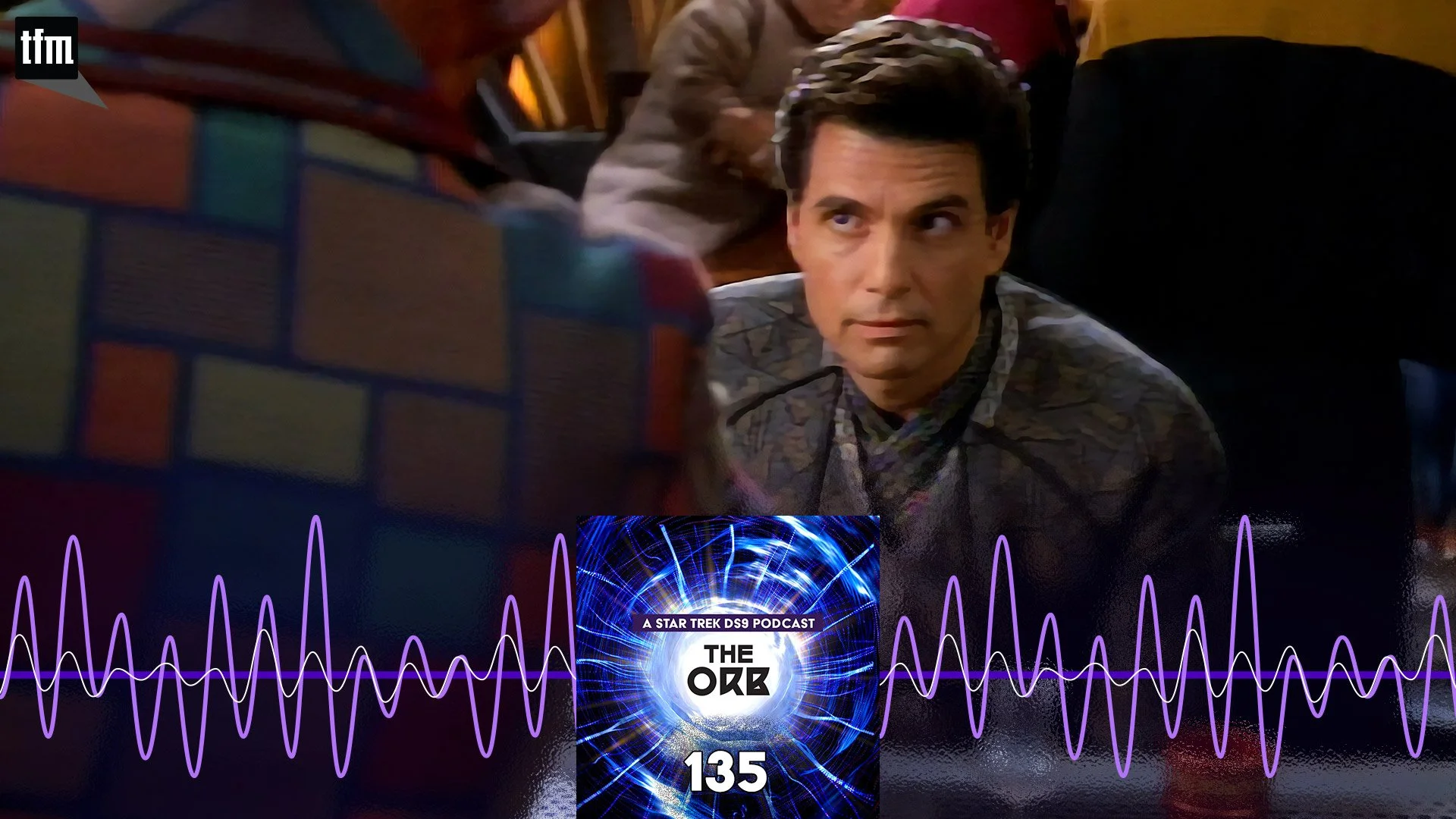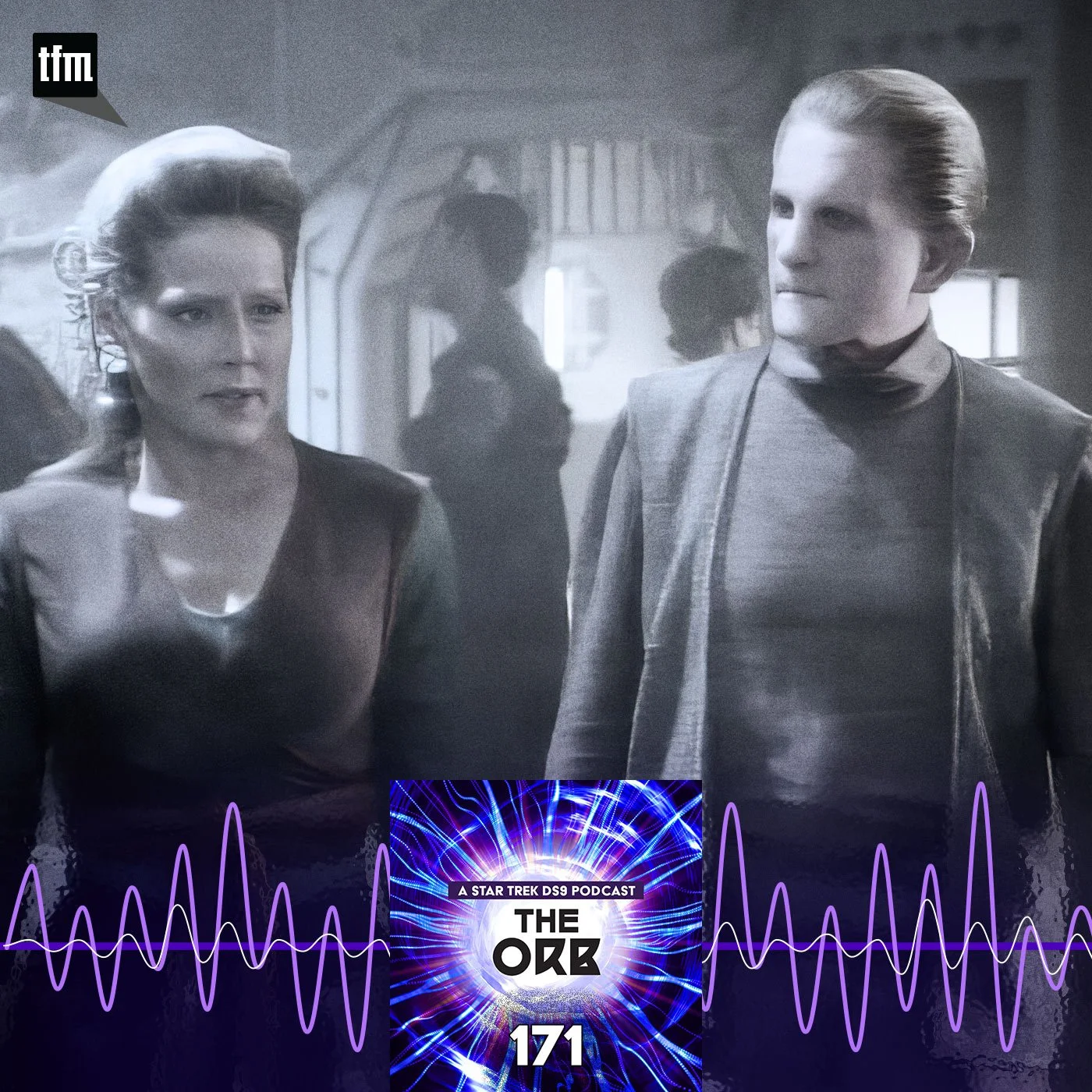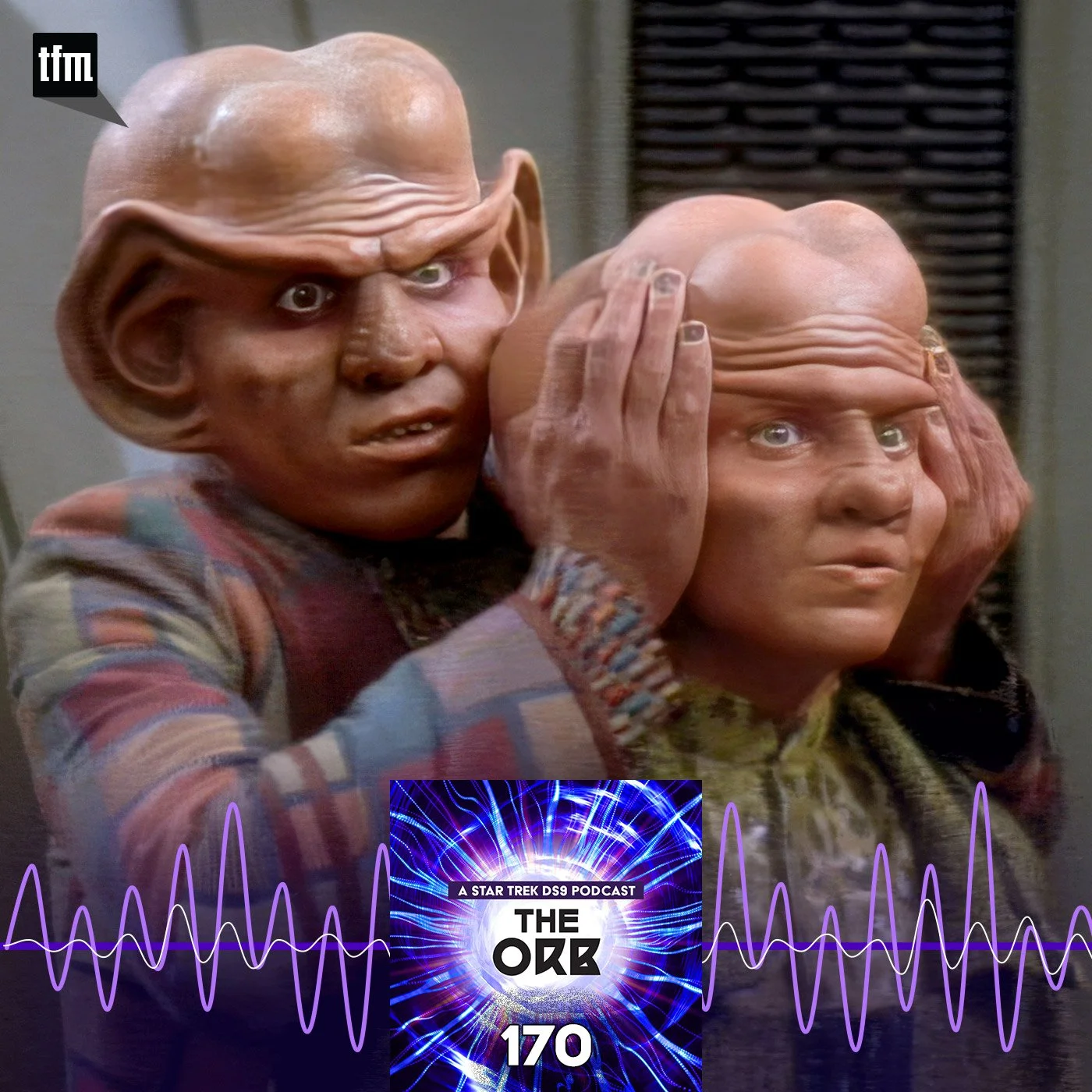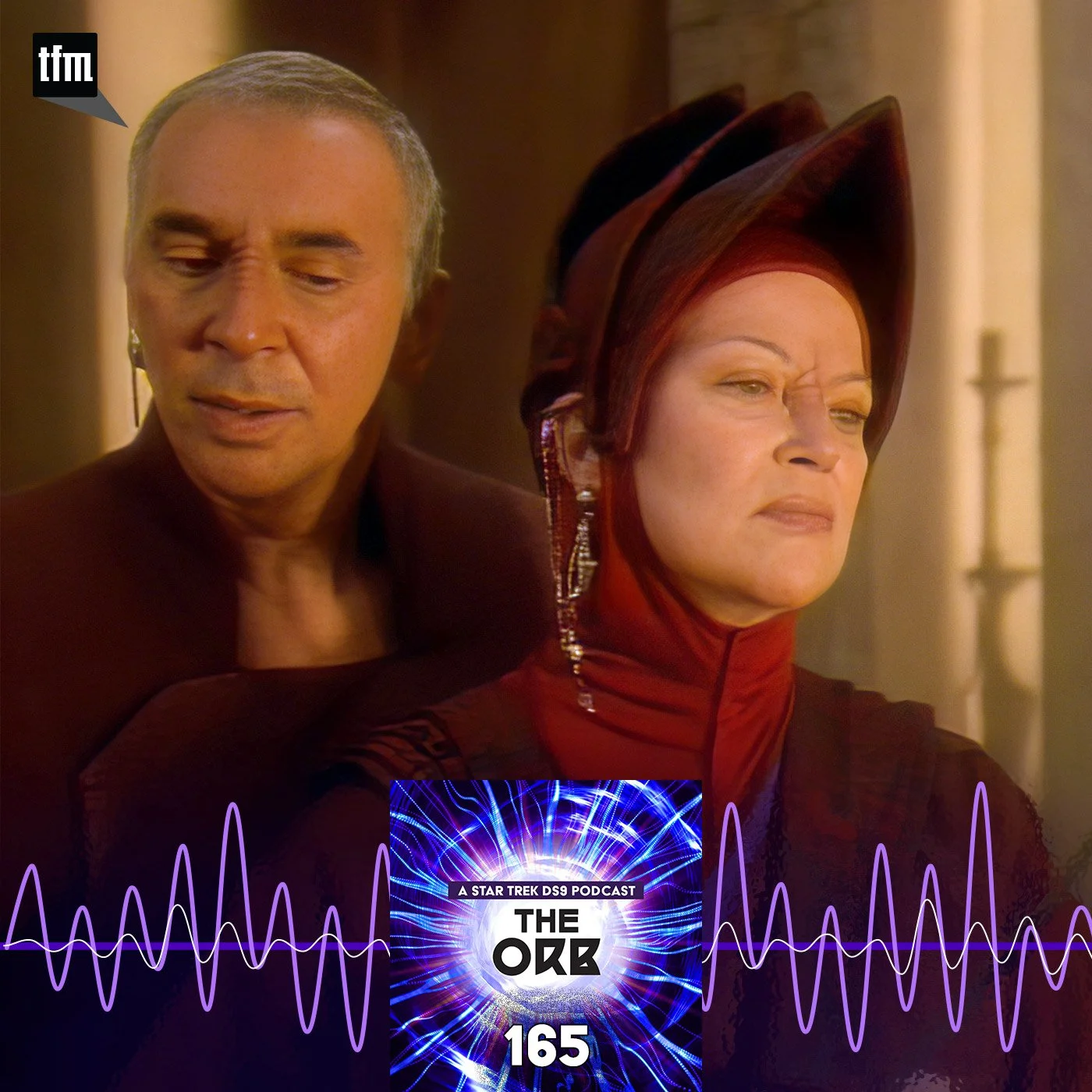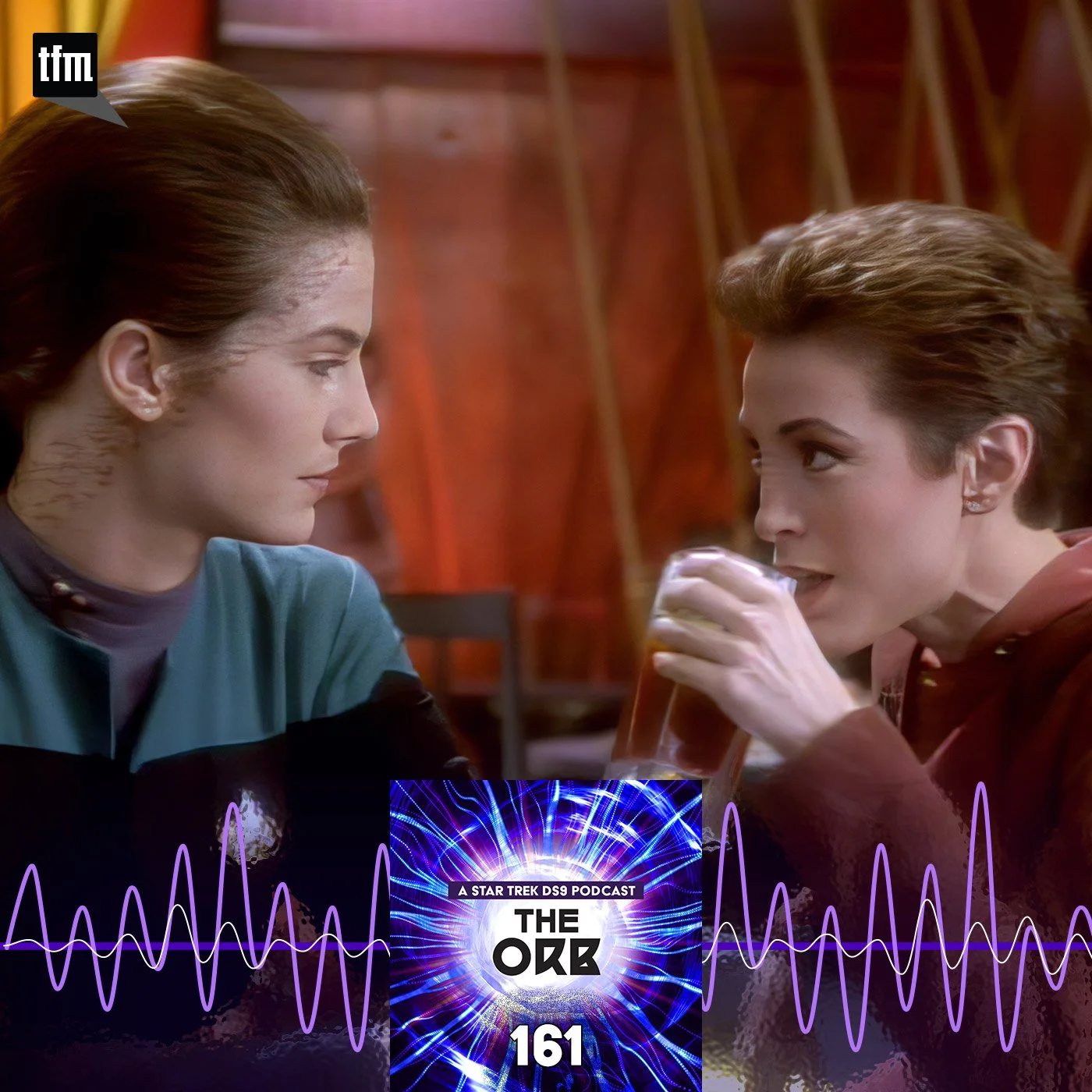Martus Mazur and El-Aurians
Running Time: 38 minutes 2 seconds
Download / RSS / Send us a message / Discuss the show / Support Trek.fm
They're known as listeners, but not all El-Aurians are as adept at doing so as Guinan, nor are their intentions as noble. We found this out in the second-season Deep Space Nine episode “Rivals," when a refugee from the El-Aurian system named Martus Mazur came aboard the station and caused all sorts of trouble for the crew. This visit also marked a first for Star Trek canon. Despite Guinan having appeared in 29 episodes of the The Next Generation, she was never named as being an El-Aurian. That happened in the film Generations, which premiered almost 11 months after “Rivals.”
In this episode of The Orb, with Guinan having returned in Season 2 of Star Trek: Picard, hosts C Bryan Jones and Matthew Rushing revisit the only appearance of El-Aurians on DS9 and discuss how the original idea for the story would have connected to Guinan by making Martus her wayward son. We talk about how the story’s impact and plot changed when Whoopi Goldberg was unable to make an appearance, and explore the concept of El-Aurians in general, how the three we've spent time with (counting Tolian Soran) use their skills as listeners, and imagine how the species could be used for an epic, galaxy-ending threat in modern Star Trek.
Chapters
Intro (00:00:00)
Wayward Son (00:02:58)
Listening for Personal Gain (00:07:54)
Where Are All the El-Aurians? (00:16:18)
Beyond Listening (00:24:12)
Final Thoughts (00:28:59)
Closing (00:32:46)
Hosts
C Bryan Jones and Matthew Rushing
Production
C Bryan Jones (Editor and Producer) Matthew Rushing (Executive Producer) Norman C. Lao (Associate Producer)

